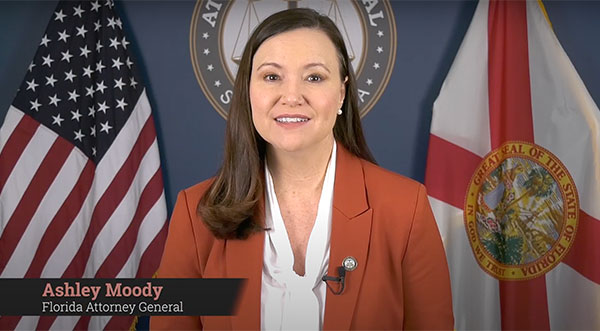Bussiness
Why companies keep betting — and losing — on Harry and Meghan
Prince Harry and Meghan Markle seem like lovely people. Despite some harrowing experiences throughout their love story, they appear to be well-meaning, and they have two very cute kids. All in all, they’re … fine. They are also incredibly famous. But this combination of decency and notoriety does not necessarily translate to them being great business people or top-notch media moguls, as evidenced by companies throwing millions of dollars at them, with, let’s say, mixed results.
Netflix announced on April 11 that two new shows from the Duke and Duchess of Sussex are in the early stages of production. The first will be a series “curated” by Meghan that, according to its vague logline, “celebrates the joys of cooking, gardening, entertaining, and friendship.” The second will be about professional polo, shot at a championship in Florida. Film crews followed Harry around playing in a polo match this month.
These productions are part of the deal the pair signed with the streaming platform in 2020, reportedly worth $100 million. It has resulted in some hits, or rather, a hit: a multipart documentary called “Harry and Meghan” about the duo’s romance, turbulence with the royal family, and their move to the US. It became Netflix’s most-watched documentary debut. (If you haven’t seen it, the early episodes are quite good, in my opinion, but by the end it drags.)
H&M’s deal with Netflix has also produced some misses. Netflix dropped “Pearl,” an animated children’s series Meghan created through her and Harry’s production company, Archewell Productions, before it even premiered. Netflix executives reportedly turned on the idea because they figured kids wouldn’t really care who made the show, even if she was a duchess. Two other documentary series the pair put out on Netflix, “Heart of Invictus” and “Live to Lead,” didn’t break through. The Wall Street Journal reported in 2023 that Netflix had also rejected at least two TV ideas from Meghan and Harry and that the company was unlikely to renew their deal with them in 2025. Netflix did not return a request for comment for this story.
Despite the misfires, Netflix is having a better time with the couple than Spotify. The audio-streaming company signed a deal with Harry and Meghan in 2020 reportedly worth $20 million. After a long stretch of radio silence, the couple finally came out with “Archetypes” in 2022, a 12-episode podcast hosted by Meghan about women and “the labels that try to hold women back.” In 2023, Spotify and the royal couple said they had agreed to part ways. The pair reportedly didn’t get paid the full $20 million because they didn’t produce enough content.
After four years outside the official orbit of the royal family, as The WSJ notes, the documentary and Harry’s memoir “Spare” are the only impactful things Harry and Meghan have produced. It’s hard not to look at all of this and say, OK, Harry and Meghan seem nice, but if I ran a company, I probably would not be making big deals with them.
The $100 million at the time sounded like a good idea, and who knew that the two of them would be such duds on camera?
While Spotify has already washed its hands of the Sussexes, Netflix is still trying to work with them. As Michael Pachter, a managing director at Wedbush Securities who’s covered movies, entertainment, and tech for two decades, explained, it’s because they’ve still got that $100 million deal. It’s one of many such agreements Netflix signed with big names when it was trying to better establish itself and get eyeballs, including with Barack and Michelle Obama, Ryan Murphy, and Shonda Rhimes.
“The $100 million at the time sounded like a good idea, and who knew that the two of them would be such duds on camera?” Pachter said.
It’s possible one or both shows could take off like their personal documentary did. There’s still juice in the Meghan and Harry storyline. Netflix may be hoping there’ll be some halo effect from “Suits,” the 2010s-era legal drama Markle was in that recently became a Netflix hit.
The shows being proposed now will likely be relatively inexpensive to make — it’s not wildly costly to pay a camera crew to film Harry playing polo or Meghan cooking something in her kitchen (if that’s what her show turns out to be). Productivity prospects may be better here because Meghan and Harry won’t really have to do much of anything extra except exist as themselves. Harry won’t need to come up with a podcast concept, which he reportedly struggled to do with Spotify — he just has to ride a horse. And maybe just keeping on good terms with the Sussexes is worth it in case more drama erupts from the royal family. Perhaps Prince Harry decides to try to get back into the royal fold and documents that. A public breakup with Meghan and Harry may also be a mess Netflix doesn’t want to deal with.
But barring some juicy new development or a sudden turnaround in viewer interest, Netflix could decide to throw in the towel, but unlike Spotify, the streamer might not be able to recoup any of the $100 million from the Sussexes.
“Netflix can cancel this anytime they want and just pay them the unpaid amount,” Pachter said. “And maybe they will do that if they keep messing around with the formula and can’t find anything. They’re not going to waste their time if nobody watches it.”
The what-to-do-with-Meghan-and-Harry issue is also illustrative of a broader point: Celebrity-driven media is a tough business. Plenty of people are famous for one thing — acting, singing, being good at a sport, being born into a very wealthy British family that happens to own a lot of land and jewels — and then have a hard time parlaying that into something different. It feels like nearly every celebrity has a podcast, but only a handful have broken through — like “SmartLess” Jason Bateman, Will Arnett, and Sean Hayes or Joe Rogan’s show. The list of stars turned failed talk-show hosts is endless and includes Magic Johnson and Chevy Chase.
Working out which celebrities can cross over is hard, and there’s no clear formula that guarantees success. If there were, everyone would be implementing it.
Media companies founded by Reese Witherspoon and LeBron James have had some successes, but they haven’t been guaranteed hit factories. In the 1990s and early 2000s, a number of Hollywood studios’ so-called “vanity deals” with celebrity-backed productions flopped or were canned, including with stars such as Alicia Silverstone, Nicolas Cage, and Demi Moore. More recently, the Obamas have received multiple accolades for some of their productions, though they haven’t hit a bunch of commercial home runs. Just this week, CNN canceled its fairly new talk show with Gayle King and Charles Barkley.
Working out which celebrities can cross over is hard, and there’s no clear formula that guarantees success. If there were, everyone would be implementing it.
Despite their trials and tribulations, Meghan and Harry are still at it. Archewell Productions continues to exist. Meghan is launching some sort of lifestyle venture called American Riviera Orchard that, so far, is mainly a website and an Instagram account. She’s filed a number of trademark applications that would indicate she may plan to dip into skincare, cosmetics, yoga mats, and accessories for pets. The former actor has experience in the lifestyle space — in her previous life, she ran a blog called The TIG. This week, the brand released its first product — 50 jars of jam sent to Meghan’s friends. Is Meghan Markle the new J.M. Smucker? Sure, maybe, and then she can show everyone how she made that jam on her hit Netflix show.
Emily Stewart is a senior correspondent at Business Insider, writing about business and the economy.









